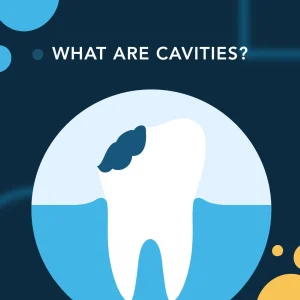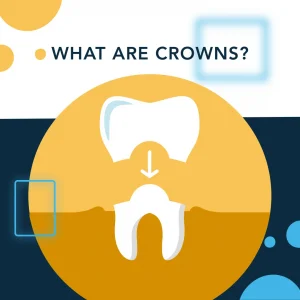Dental health is a critical component of overall wellness, yet it’s often overlooked until minor issues escalate into significant problems. With a myriad of potential dental health issues ranging from common cavities to gum disease and beyond, understanding these conditions and their treatments is vital for maintaining a healthy smile.
Whether you’re struggling with sensitive teeth, wondering how to combat bad breath, or seeking ways to prevent gum disease, this comprehensive guide will provide you with the knowledge needed to take proactive steps toward achieving and maintaining optimal dental health. By emphasizing prevention, early detection, and innovative treatment options, we’ll explore how modern dentistry is equipped to tackle these challenges so that you can keep your teeth and gums healthy for years to come.
The Importance of Oral Health
Maintaining good oral hygiene practices is essential to prevent dental problems, such as cavities and gum disease. If these issues are left untreated, they can lead to more severe health problems, including heart disease, diabetes, and stroke. To significantly reduce these risks, it is crucial to have regular dental check-ups and follow proper brushing and flossing techniques.
Common Dental Health Issues
Dental issues are more common than you may think and can affect individuals of all ages. From cavities and gum disease to tooth sensitivity and bad breath, these problems can significantly impact one’s quality of life. Other prevalent concerns include dental erosion, oral infections such as thrush, and conditions leading to tooth loss and misalignment. Addressing these issues promptly with professional dental care can not only restore oral health but also enhance personal comfort and your smile’s aesthetics.
Tooth Decay
Tooth decay is a common dental problem primarily caused by bacteria residing in the mouth. These microorganisms feed on sugars from the food and drinks we consume, producing acid as a byproduct. This acid is highly detrimental as it begins to erode the tooth enamel, the hard, protective outer layer of the teeth. Over time, if left untreated, this erosion can lead to the formation of cavities or caries.
 Cavities
Cavities
Cavities, also known as dental caries, are holes in the teeth caused by tooth decay. They result from the buildup of plaque and the action of bacteria on sugars and can lead to toothache, sensitivity, and infection. The progression of cavities can introduce bacteria to the innermost parts of the tooth, paving the way for infection, abscesses, and even systemic health issues if the infection spreads.
Gum Disease
Characterized by swollen, tender gums that may bleed during routine brushing, gum disease initially manifests as gingivitis, a mild form of the condition that can quickly escalate to periodontitis if not addressed. This condition is primarily driven by the relentless buildup of plaque, a sticky film of bacteria that adheres to teeth and gums. As the disease advances, it affects not only the gums but also the bone structure supporting the teeth, potentially leading to tooth loss.
Oral Cancer
Oral cancer is a type of cancer that affects the mouth, lips, tongue, or throat. The risk of developing this cancer increases due to factors such as tobacco use, heavy alcohol consumption, and HPV infection. Symptoms usually include sores, lumps, or rough areas in the mouth. During regular dental cleanings, an oral cancer screening is typically performed to detect this cancer at an early stage.
Tooth Sensitivity
Experiencing discomfort or pain when consuming hot, cold, sweet, or acidic foods and drinks often signals tooth sensitivity. This condition arises as tooth enamel erodes or gums recede, exposing the dentin, the layer of tissue beneath the tooth’s enamel. Effective management includes excellent oral hygiene, utilizing desensitizing toothpaste, and seeking regular dental advice from a professional.
Bad Breath (Halitosis)
Often a source of embarrassment, bad breath, or halitosis, can be caused by various factors, including poor dental hygiene, dry mouth, infections, and certain foods. Regular brushing, flossing, and tongue cleaning, along with staying hydrated, can significantly reduce bad breath. Persistent halitosis may require a dentist’s intervention to identify and treat the underlying cause.
Dental Erosion
Dental erosion, the gradual loss of tooth enamel due to acid attack, exposes the underlying dentin, leading to sensitivity and an increased risk of cavities. Commonly triggered by acidic foods and drinks and conditions like acid reflux, it’s preventable by reducing acidic intake, using fluoride toothpaste, and practicing good oral hygiene.
How Are Common Dental Issues Treated?
Treating common dental issues typically involves a combination of professional dental care and home oral hygiene practices. Cavities may require fillings, while advanced tooth decay could necessitate root canals or crowns. Gum disease treatment ranges from deep cleaning to surgery for severe cases. Tooth sensitivity benefits from specialized toothpaste and fluoride treatments. For bad breath, dental cleaning and addressing underlying causes are key. Regular dental check-ups are essential for early detection and management of these conditions.
Professional Cleanings
Professional cleanings, performed by dentists or dental hygienists, are crucial for removing plaque and tartar build-up that regular brushing and flossing can’t tackle. These cleanings prevent cavities, gum disease, bad breath, and help in the early detection of potential dental issues, contributing significantly to overall oral health.
Fillings
Fillings are a common dental treatment used to restore teeth damaged by decay back to their normal function and shape. After removing the decayed material, the dentist fills the cavity with materials like composite resin, porcelain, or dental amalgam. Fillings prevent further decay by sealing off spaces where bacteria can enter.
Root Canals
Root canal treatment addresses problems within the tooth’s soft core (dental pulp). It’s often required when infection or inflammation develops in the roots of a tooth. During the procedure, the pulp is removed, and the inside of the tooth is cleaned and sealed. Root canals can save and restore teeth that might otherwise need extraction, alleviating pain and preventing further infection.
Scaling & Root Planning
Scaling and root planing is a deep cleaning procedure aimed at treating gum disease. It involves removing plaque and tartar from above and below the gum line (scaling) and smoothing out the tooth roots (planing) to help gums reattach to the teeth. This non-surgical treatment can significantly reduce periodontal pockets and halt disease progression.
Medications
Medications play a vital role in treating common dental issues, especially infections and pain management. Antibiotics can treat bacterial infections, including those in gums and teeth. Analgesics and anti-inflammatory drugs alleviate pain and swelling. For more severe conditions like oral thrush or extensive gum disease, antifungal and more specialized medications might be prescribed, often complementing other dental treatments.
Surgery
Surgery can be essential for resolving certain dental issues, especially those unresponsive to conventional treatments. Procedures like tooth extractions are common for irreparably damaged or impacted teeth. Periodontal surgery targets advanced gum disease by cleaning infected areas beneath the gums and reshaping the bones that support teeth.
Crowns
Crowns, or caps, are custom-fitted restorations that cover the entire tooth surface, restoring its shape, size, strength, and appearance. They’re used for severely decayed, broken, or cracked teeth, or after root canal treatment. Made from porcelain, ceramic, or metal alloys, crowns protect and reinforce the underlying tooth, ensuring its long-term durability and function.
Dental Implants & Dentures
Dental implants and dentures are popular solutions for missing teeth. Implants provide a permanent base for replacement teeth, closely mimicking the look and feel of natural teeth. Dentures, which can be full or partial, are removable appliances that replace missing teeth and restore function. Both options significantly improve a patient’s quality of life, appearance, and oral health.
Bonding
Bonding is a cosmetic dental procedure where a tooth-colored resin material is applied and hardened with a special light, bonding the material to the tooth to improve a person’s smile. It’s an effective treatment for repairing chipped, cracked, discolored, or misshapen teeth, offering a simpler alternative to more invasive procedures.
Tooth Extraction
Tooth extraction is the removal of a tooth from its socket in the jawbone, typically due to decay, disease, or overcrowding. While considered a last resort, it can relieve pain and prevent further oral health complications. Post-extraction, patients may consider replacements like implants or bridges to maintain oral function and aesthetics.
Why is Preventative Dental Care Important?
Preventative dental care is crucial for maintaining oral health and avoiding the development of cavities, gum disease, and more severe dental issues. Regular check-ups, cleanings, and good oral hygiene practices can detect problems early when they’re easier and less expensive to treat. This approach not only preserves the natural structure of your teeth but also supports overall health by reducing the risk of related systemic conditions.
Prevent Tooth Decay & Cavities
Preventative dental care plays a pivotal role in safeguarding against tooth decay and cavities. By adhering to a rigorous oral hygiene routine, including twice-daily brushing with fluoride toothpaste and consistent flossing, alongside minimizing the consumption of sugary and acidic foods and beverages, individuals can significantly lower their risk.
Reduced Risk of Gum Disease
Effective preventative strategies, including regular oral hygiene practices and dental check-ups, help maintain the integrity of gum tissue. They also prevent the onset of infections that can ultimately lead to tooth loss, bone damage, and even contribute to systemic health issues. By prioritizing preventative care, individuals can safeguard their overall health and avoid the complex treatments often required for advanced gum disease.
Prevents Bad Breath
Preventative dental care is key to avoiding bad breath, primarily caused by the buildup of bacteria in the mouth. Regular brushing, flossing, and dental check-ups help remove plaque and tartar, keeping your mouth clean and fresh. This routine not only prevents halitosis but also addresses underlying issues that may contribute to persistent bad breath.
Cost Savings
Preventative dental care is crucial for cost savings, as it helps avoid the need for expensive treatments later on. Regular check-ups, cleanings, and maintaining good oral hygiene can prevent issues like cavities, gum disease, and more severe complications, which are costlier to treat. Investing in prevention thus reduces long-term healthcare expenses, making it a financially wise choice.
Promotes Overall Health
Preventative dental care is vital for overall health because poor oral hygiene can lead to systemic conditions like heart disease, diabetes, and stroke. Regular dental check-ups and good oral hygiene can prevent infections that might spread or exacerbate other health issues. Thus, maintaining oral health is a crucial step in promoting and sustaining general well-being.
Detect Dental Problems Early On
Regular dental check-ups are an essential aspect of preventative dental care. They enable dentists to detect dental problems early, which is crucial for effective treatment. During these check-ups, dentists can identify issues such as cavities, gum disease, and early signs of oral cancer before they become severe. Early intervention often means simpler, less invasive treatments, preserving natural teeth and preventing more complex conditions. Therefore, it is vital to schedule regular dental check-ups to maintain your oral health.
Schedule a Checkup with a Dentist in Davie, FL
Scheduling a checkup with a dentist in Davie, Florida, is your first step toward ensuring a healthy smile and preventing future dental issues. Dentists near me are equipped with the latest technology and offer a wide range of services, from routine cleanings to more advanced treatments and even cosmetic procedures. Regular visits not only keep your teeth and gums in optimal condition but also allow for early detection of potential problems. Contact us today to schedule your dental appointment with a Davie dentist today.
June 11, 2024

 Adult
Adult



 Cavities
Cavities